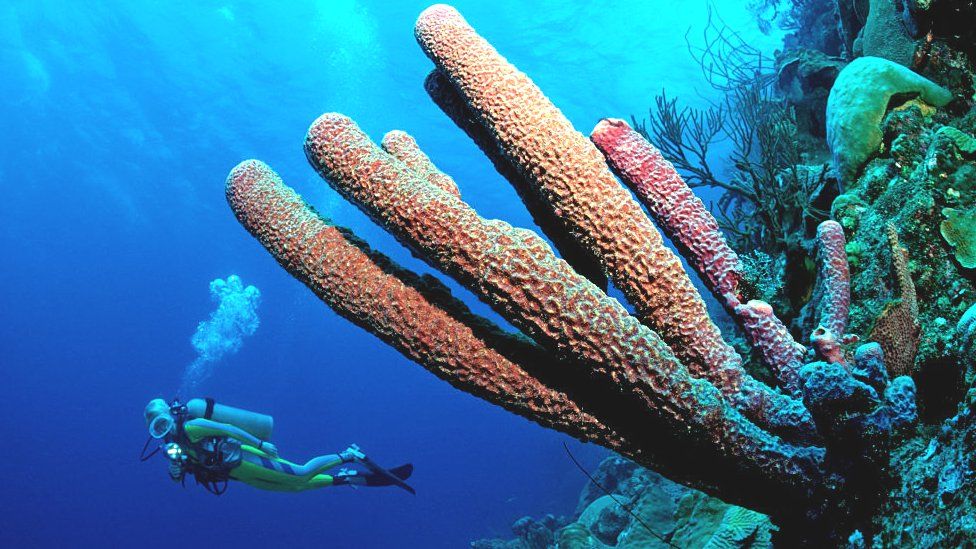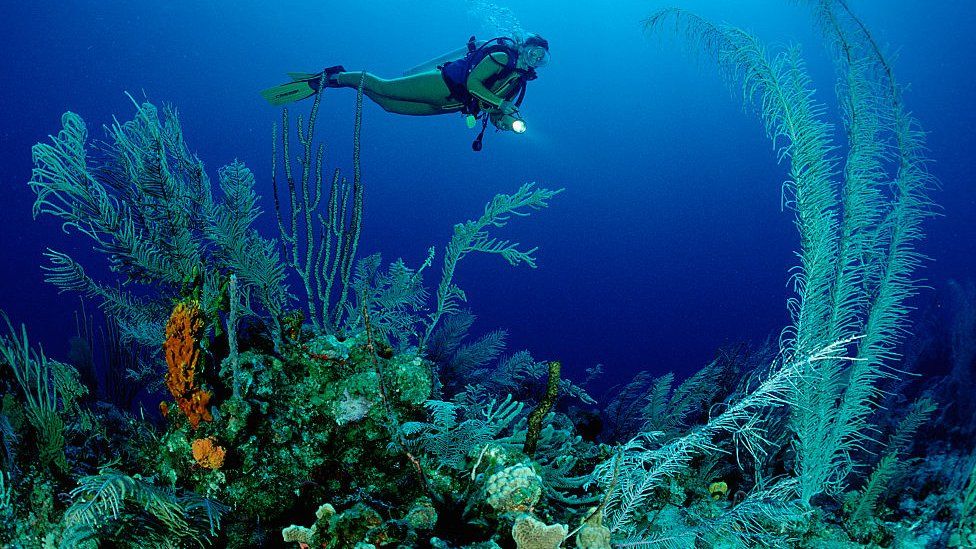
Scientists map Caribbean coral reefs to tackle climate change
Scientists have mapped coral reefs in the Caribbean to identify those most likely to survive climate change.
Corals with the highest potential to escape destruction from marine heat waves are predominantly located along the northern shoreline of Cuba.
And other promising sites are clustered around the Bahamas, Dominican Republic, Guadeloupe, Haiti, eastern Jamaica, and the US state of Florida.
Coral reefs are wonders of the ocean.
Made up of hundreds of thousands of tiny creatures, they are one of the most threatened ecosystems on the planet.
According to a recent IPCC report (top-level UN reports written by scientists), at up to 1.5C of warming, only 10 to 30% of coral reefs are expected to survive. If warming is above that, survival prospects plummet drastically.
The research team compared different climate models and examined factors such as hurricane damage and heat stress. They used this to define a list of coral that are priorities for protection due to their better resilience to climate change.
Locating and managing the places that hold "greatest promise to sustain key species will be critical for helping these precious habitats persist as the planet continues to warm," said lead researcher, Iliana Chollett.

Heat stress can cause coral to die
The insights are already shaping reef conservation efforts "to deliver durable, climate-smart protection for those ecosystems most likely to survive this century," added Ximena Escovar-Fadul, of global environmental non-profit, The Nature Conservancy.
But the scientists say their research - in line with other studies - shows coral reefs will not survive 2C of warming, meaning urgent greenhouse gas emission reductions are needed to save them for future generations.
The research is published in the journal, Global Change Biology.
SOURCE: BBC